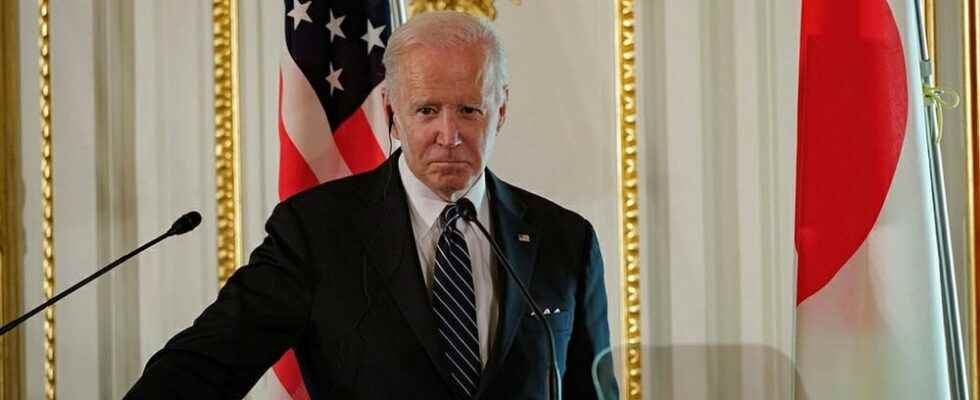It was during a press conference in Tokyo together with the Japanese Prime Minister Fumio Kishida that the statement came. In light of Biden’s choice not to become militarily involved in the war in Ukraine, a reporter asked how he would act in a similar situation in Taiwan:
– Are you willing to intervene militarily to defend Taiwan?
– Yes. That is the commitment we have made, Biden replied.
The president’s staff hurried afterwards to clarify the meaning of the statement. A letter from the White House states that US policy has not changed, that the principle of a China still applies and that the United States has a continued commitment to peace and stability around Taiwan. In a Chinese invasion, the United States would provide Taiwan with military means to defend itself, but not send any soldiers, according to the White House.
But Jan Hallenberg, research leader at the Foreign Policy Institute and an expert on US foreign and security policy, is hesitant.
– The American strategy has always been “ambiguity”, ie ambiguity. It is said that it stands by Taiwan’s side, supports democratic development and sends weapons to Taiwan – but does not give clear information about what would happen in a Chinese invasion. This has been the case all along, but now Biden clearly answers “yes” to a straight question.
He also points out that this is not the first time Joe Biden has hinted at a possible change. In October last year, he made a similar statement in a television broadcast on CNN. Even then, the White House was quick to deny any changes in US policy regarding China and Taiwan.
– The staff usually say that Biden speaks based on his feelings sometimes. But in the last year, he has on at least two occasions questioned a fundamental thesis throughout the China strategy. And then one wonders if it’s about official American politics or about Biden’s feelings.
But despite the White House nuanced Biden’s statements about Taiwan, the president’s words weigh heavily, says Jan Hallenberg. And Björn Jerdén, head of the National Knowledge Center on China at the Foreign Policy Institute, agrees. According to him, the double messages can even be an extension of the ambiguous strategy.
– We do not know if this is about Biden having made a frog or if it is actually the case that the USA has reviewed its policy. And China does not know that either. So if I were to guess, I think it’s a conscious signal from the United States. And I think it has an effect.
Arvid Åhlund: Biden’s “frog” about Taiwan is an extremely serious signal
The effect that the United States wants achieve, of course, based on the Ukraine context, say Hallenberg and Jerdén. Biden himself and several other American politicians think that the United States has failed to deter Putin from acting in Ukraine. A stronger stance after 2014 could have stopped a full-scale invasion of Ukraine. And now they want to deter China.
According to Björn Jerdén, concerns about relations between the United States and China have grown in both places in recent years. Ever since the United States recognized the “One China” policy in 1979, diplomatic relations have been characterized by the agreement that Taiwan is part of China. Even if the United States did not take the same definitive position as China, the countries came close enough to be able to have a dialogue. But now both countries perceive a “slippage” in the other party’s position, says Björn Jerdén.
– The Chinese are worried that the United States is ignoring China’s views on US relations with Taiwan. And the US, for its part, perceives that China has become more aggressive when it comes to Taiwan and that it will no longer accept the “status quo”.
But Björn Jerdén does not believe that an invasion of Taiwan is imminent despite several Chinese aggressions. Trying and failing would risk challenging the legitimacy of the leaders in a way that they do not want to risk, he says. However, he warns against believing that the failure of the Russian invasion of Ukraine and the response of the Western world would have a strong impact on China’s approach to Taiwan.
– I do not think that China is ready to learn lessons from what happened in Ukraine, it will take longer. And I do not think it is a given what lessons it will be, we should not hope too much that they draw the lessons we want.
